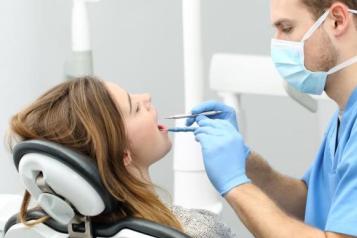How to stay cool in the hot weather

Staying safe in the hot weather
While many people enjoy warmer summer weather, hot weather can cause some people to become unwell through overheating - becoming uncomfortably hot, dehydration, heat exhaustion and heatstroke. Protect yourself by:
- keeping out of the sun at the hottest time of the day, between 11am and 3pm
- planning physical activity, for example exercise or walking the dog, during times of the day when it is cooler such as the morning or evening
- keeping your home cool by closing windows and curtains in rooms that face the sun
- when you are outside, covering up with suitable clothing such as a hat and sunglasses, seeking shade and applying sunscreen
- drinking plenty of fluids and limiting your alcohol intake
- knowing the symptoms of heat exhaustion and heatstrokeand what to do if you or someone else has them
Make sure you check on family, friends and neighbours who may be at higher risk of becoming unwell, and if you are at higher risk, ask them to do the same for you.
Find more information about how to stay safe in hot weather on the government's website.
Being prepared for the hot weather
It is important to follow the council’s advice in this guidance to be prepared for hot weather. This is particularly important if you are at a higher risk of becoming seriously unwell. To prepare, you can:
- listen to the news and check your local weather forecast so that you know when hot weather is expected
- look out for advice on what to do if services such as power, water supplies and transport are likely to be affected
- check air pollution forecasts and advice, as air pollution can become worse during hot weather and can cause problems for people with asthma and other breathing problems
- when hot weather is expected, plan your activities to avoid being outside during the hottest part of the day, between 11am and 3pm
Keeping your home cool
Homes can overheat and become uncomfortable during warmer weather, particularly when you are trying to sleep. Take the following steps to cool your home:
- close blinds and curtains on windows that are exposed to direct sunlight during the day
- close external shutters or shades if you have them
- move to a cooler part of the house, especially for sleeping
- open windows (if it is safe to) when the air feels cooler outside than inside, for example at night, and try to get air flowing through your home
- use electric fans if the air temperature is below 35°C, but do not aim the fan directly at your body as this can lead to dehydration
- check that any heating is turned off
- turn off lights and electrical equipment that are not in use
- go outside if it is cooler outside in the shade
Staying well during the hot weather
There are things you can do to prevent yourself from overheating when the weather is hot. If you do get too hot, it is important to give your body a break from the heat and take actions that will help cool you down.
Prevent dehydration
Find more information on the signs and symptoms of dehydration on the NHS website.
Carry water with you: If you are going out, take a refillable bottle filled with water. Take extra water for journeys on public transport or by car. Find out where to refill water bottles for free using the Refill app or search Refilll London.
Drink: Drink fluids regularly throughout the day, especially if you are physically active. You should drink enough that your pee is a pale straw colour.
Water and diluted squash or lower fat milks are good choices. Fruit juice, smoothies and soft drinks can be high in sugar which dehydrates the body. Limit the amount of fruit juice or smoothies that you drink, and swap sugary soft drinks for diet, sugar-free or no added sugar varieties.
Alcohol: Alcohol has a dehydrating effect on the body, so it is a good idea to choose alcohol-free options, or alternate alcoholic drinks with a glass of water.
Fasting: If you are fasting during a heatwave, it is important to drink enough to adequately hydrate before you fast and follow the guidance on keeping cool and preventing dehydration. People with underlying health conditions should seek medical advice before fasting.
Protect yourself from the sun
The sun is often strong enough in the UK to cause sunburn, and children are particularly at risk of skin damage from the sun. Take the following actions to protect yourself from the sun:
- stay in the shade, between 11am and 3pm when the sun is strongest
- wear a wide-brimmed hat to protect your face, eyes, head, ears, and neck
- wear sunglasses which are wraparound or with wide arms to provide protection from the sun
- apply sunscreen generously and re-apply frequently, especially after activities that remove it, such as swimming or towelling. The NHS recommends that this should be with a sun protection factor (SPF) of at least 30, and 4 or 5 star ultraviolet A (UVA) protection
Find more information on sunscreen and sun safety, including how to apply sunscreen on the NHS website.
Limit strenuous physical activity
If you can, limit the amount of strenuous physical activity that you do during the hottest part of the day, between 11am and 3pm. If you do want to carry out any physical activities, such as exercise or gardening, plan to do these during the morning or evening when it is cooler.
Children should not take part in strenuous physical activities on very hot days.
Avoid hot closed spaces
Small, closed spaces such as stationary cars can get dangerously hot very quickly. Make sure that babies, children, older people and pets are not left alone in stationary cars or other closed spaces.
Ensure children in prams or pushchairs are shaded by using a parasol. Make sure there is adequate air flow, remove any excess clothing, and check on them regularly to make sure they are not overheated.
Find more information on keeping your baby safe in the sun on the NHS website.
Higher risks of becoming unwell in the hot weather
Anyone can become unwell when the weather is hot. People who are at higher risk of becoming seriously unwell include:
- Older people aged 65 years and over (note change from previous guidance of 75 years of age and above)
- babies and young children aged five years and under
- people with underlying health conditions particularly heart problems, breathing problems, dementia, diabetes, kidney disease, Parkinson’s disease, or mobility problems
- people who:
- are on certain medications
- have serious mental health problems
- experience alcohol or drug dependence
- are physically active and spend a lot of time outside such as runners, cyclists and walkers
- work in jobs that require manual labour or extensive time outside
- are experiencing homelessness, including rough sleepers and those who are unable to make adaptations to their living accommodation such as sofa surfers or living in hostels.
- live alone and may be unable to care for themselves
Check in with anyone you think might be at risk and see if they need help. If you have any health concerns, please call NHS 111.
Medication
You should continue taking all of your prescribed medicines unless advised not to by a medical professional. Some medications need to be stored below 25°C or in the fridge, following the storage instructions on the packaging.
How to cool down
How to cool down if you or someone else has symptoms of heat exhaustion:
- move to a cooler place such as a room with air conditioning or somewhere in the shade
- remove all unnecessary clothing like a jacket or socks
- drink cool water, a sports or rehydration drink, or eat cold and water rich foods like ice-lollies
- apply cool water by spray or sponge to exposed skin, and using cold packs wrapped in a cloth and put under the armpits or on the neck can also help
You should start to cool down and feel better within 30 minutes.
If you are concerned about symptoms, or they are worsening, seek medical advice by contacting NHS 111. In an emergency, or if you think someone has heatstroke, telephone 999.
Cool spaces map
Public buildings such as places of worship, local libraries, or supermarkets may be cooler than your home. If they are nearby, consider visiting one of these as a way of cooling down.
Cool Spaces have been put forward by boroughs, community groups, faith-based and other organisations following an invitation to register by the GLA. Cool Spaces are classified according to two tiers:
- Tier 1 Cool Spaces have all the key amenities to cope in hot weather: lower temperatures than outdoors, free seating space for rest and recovery, free drinking water and toilets. They are accessible to disabled people, open at least five days a week and at least from 10am to 5pm.
- Tier 2 Cool Spaces may not be accessible to disabled people, may not have toilets and be open less frequently, but at least two days a week.
The tiered approach to classifying Cool Spaces is meant to provide Londoners with an understanding of what they can expect from venues and how some Cool Spaces can better suit their needs. The full criteria for the different tiers can be found here.
The local cool spaces map in our borough are as follows:
- Venture Centre (Tier 1)
Address: 103a Wornington Road, London W10 5YB.
Monday – Saturday 10am-7pm,
- Kensal Library (Tier 2)
Address: 20 Golborne Road, London W10 5PF
Mondays, Tuesdays and Thursdays 1pm-6pm, Wednesdays – closed, Fridays and Saturdays: 9:30am–5pm, Sundays: closed
- North Kensington Library (Tier 1)
Address: 108 Ladbroke Grove, London W11 1PZ
Monday, Tuesday, and Thursday from 9:30 am to 8 pm, Wednesday and Friday from 9:30 am to 5 pm, and Saturday from 9:30 am to 5 pm.
- Henry Dickens Community Centre (Tier 1)
Address: St Anns Road, Kensington and Chelsea, W11 4DH.
Mondays to Fridays – 10am-6pm
- Kensington Central Library (Tier 1)
Address: 12 Phillimore Walk, London W8 7RX
Monday, Tuesday and Thursday -9:30am to 8pm. Wednesday and Friday -10am to 5pm, Saturday - 9:30am to 5pm.
- Brompton Library (Tier 2)
Address: 210 Old Brompton Road, London SW5 0BSx
Monday, Tuesday & Thursday – 9:30am-8pm, Wednesday, Friday and Saturday – 9:30am-5pm
See also the Refill website and download the app that offers users the chance to refill their water.


